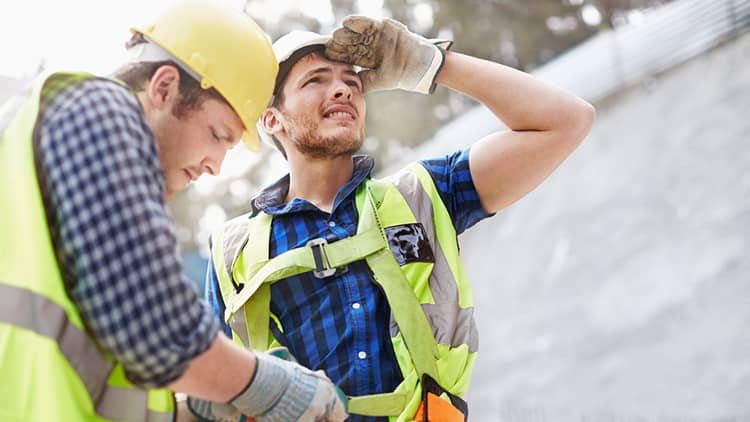The official “State Plan” of Washington is supervised by the Department of Labor and Industries, Division of Occupational Safety and Health (DOSH).
The Washington State Plan not only covers local government and state workers but also applies to private-sector workplaces with the following exceptions:
- Enforcement of new federal standards until the state adopts a comparable standard;
- Enforcement concerning offshore maritime employment (shipyard employment and longshoring), including dry docks and graving docks, marine railways and similar conveyances (e.g., syncrolifts and elevator lifts), fuel operations, drilling platforms, and rigs, dredging and pile driving, and diving;
- Enforcement in situations where the State Plan is refused entry and is unable to obtain a warrant or enforce its right of entry;
- Enforcement of unique and complex standards as determined by the Assistant Secretary;
- Enforcement in situations when the State Plan is unable to exercise its enforcement authority fully or effectively;
- Enforcement of occupational safety and health standards within the borders of all military reservations and national parks;
- Enforcement at establishments of employers who are federally recognized Indian Tribes or enrolled members of these tribes – including establishments of the Yakama Indian Nation and Colville Confederated Tribes which were previously excluded by the state in 1987 and 1989, respectively – where such establishments are located within the borders of Indian reservations, or on lands outside these reservations that are held in trust by the federal government for these tribes (non-member private sector and state and local government employers located within a reservation or on trust lands, and member employers located outside the territorial boundaries of a reservation or trust lands remain the responsibility of DOSH);
- Enforcement concerning certain contractors within the boundaries of the Hanford Reservation and the Hanford National Monument;
- Enforcement concerning contractor workers and contractor-operated facilities engaged in United States Postal Service (USPS) mail operations; and
- All working conditions of aircraft cabin crew members onboard aircraft in operation.
State Plan Standards and Regulations
OSHA rules that pertain to state, local, and business workplace operations have been approved by DOSH. DOSH has adopted most OSHA rules via reference. However, the following places have particular State Plan standards:
General Industry
- Walking-Working Surfaces
- Worker Emergency Plans and Fire Prevention Plans
- Exit Routes and Worker Alarm Systems
- Elevating Work Platforms
- Powered Platforms
- Ventilation for Abrasive Blasting and Spray Finishing
- Noise Exposure
- Nonionizing Radiation
- Hazardous Materials and Processes
- Personal Protective Equipment
- Sanitation and Hygiene Facilities and Procedures
- Temporary Housing for Workers
- Confined Spaces
- Lockout/Tagout
- First Aid and Emergency Response
- Fire Protection and Prevention
- Materials Handling and Storage
- Machinery and Machine Guarding
- Portable Power Tools
- Welding, Cutting, and Brazing
- Pulp, Paper, and Paperboard Mills and Paper Printing Operations
- Textiles
- Laundry and Dry Cleaning Machinery and Operations
- Sawmills and Other Wood Processing
- Logging and Forestry
- Telecommunications
- Electric Power Generation, Transmission, and Distribution
- Grain Handling Facilities
- Aquatic Settings
- Charter Boats
- Ski Facilities
- Window Cleaning
- Meat, Food, and Tobacco Processing and Packing
- Electrical Hazards
- Compressed Air Work
- Commercial Diving Operations
- Toxic Substances
- Airborne Contaminants
- Ionizing Radiation
- Biological Agents
- Bloodborne Pathogens
- Hazardous Chemicals in Laboratories
- Chemical Agents
- Hazard Communication
- Heat Stress and Cold Stress
- Late Night Retail Worker Crime Prevention
- Steam Piping
- Lighting
- Motor Vehicles
- Worker Intoxication
Construction
- Boilers and Pressure Vessels
- First Aid and Emergency Response
- Sanitation
- Noise Exposure
- Ionizing Radiation
- Non Ionizing Radiation
- Gases, Vapors, Fumes, Dust, and Mists
- Lighting and Illumination
- Ventilation
- Hazard Communication
- Personal Protective/Life-Saving Equipment
- Fire Protection and Prevention
- Signaling and Flaggers
- Barricades
- Storage of Materials
- Disposal of Waste Materials
- Rigging Requirements for Material Handling
- Slings
- Rigging Hardware and Lifting Devices Other than Slings and Rigging Hardware
- Lifting Devices Other than Slings and Rigging Hardware
- Hand and Power Tools
- Welding and Cutting
- Electrical Hazards
- Fall Protection
- Material Hoists, Personnel Hoists and Platforms, and Elevators
- Base-Mounted Drum Hoists
- Overhead Hoists
- Conveyors
- Aerial Cableways and Tramways
- Motor Vehicles, Mechanized Equipment, and Marine Operations
- Excavation, Trenching, and Shoring
- Concrete, Concrete Forms, Shoring, and Masonry Construction
- Steel Erection
- Underground Construction
- Demolition
- Roll Over Protective Structures and Overhead Protection
- Stairways
- Asbestos
- Cadmium
- Formaldehyde
- Methylenedianiline
- Lead
- Cranes, Rigging, and Personnel Lifting
- Walking-Working Surfaces
- Confined Spaces
- Roofing Operations
- Asphalt Mixing and Rock Crushing Operations
- House Building and Moving Operations
- Worker Intoxication
Agriculture
- Vehicles and Farm Field Equipment
- Roll Over Protective Structures (ROPS) for Tractors
- Powered Industrial Trucks (Forklifts)
- Mechanical Power-Transmission Apparatus
- Augur Conveying Equipment
- Lawnmowers
- Conveyors
- Choppers, Grinders, Abrasive Wheels, Cutters, Spreaders, and Saws
- Field Sanitation
- Sanitation for Fixed, Indoor Workplaces
- Guarding Floor and Wall Openings and Holes
- Fixed Industrial Stairs
- Portable Ladders
- Fixed Ladders
- Exit Routes
- Aerial Manlift Equipment
- Noise Exposure
- Hazardous Materials and Processes
- Eye and Face Protection
- Respiratory Protection
- Temporary Worker Housing
- Cherry Harvest Camps
- Safety Color Coding: Accident Prevention Signs and Tags
- Confined Spaces
- Lockout-Tagout
- First-Aid
- Fire Protection and Ignition Sources
- Rim Wheel and Tire Servicing
- Hand Tools
- Jacks
- Welding, Cutting, and Brazing
- Electrical Hazards
- Cadmium
- Air Contaminants
- Pesticides
- Hazard Communication
- Lighting
- Heat Stress
- Worker Intoxication
Workers in Washington who opt for supervisory or managerial roles in the construction industry must take Online OSHA 30 training in Washington since Federal OSHA mandates it, and most employers prefer OSHA 30 certified employees over those who don’t have any prior training.









